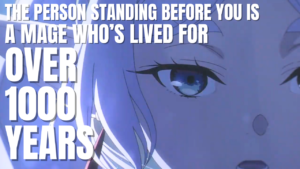Let’s learn Japanese with Tonegawa’s quote from Kaiji (Gyakkyou Burai Kaiji: Ultimate Survivor).
CONTENTS
Video
Tonegawa’s Quote
Japanese: 金はなぁ、命より重いんだ!
Romaji: kane wa nā, inochi yori omoi nda!
English: Money is worth more than life!
Analysis
金 means “money”.
は is a topic particle which indicates that 金 is the topic he is talking about.
な is a particle which comes at the end of a word or phrase, usually used to convince someone in male speech.
命 means “life”.
より means “than”.
So 命より means “than life”.
重い means “heavy”. In this context, it means “important” or “worthy”.
んだ is used to make a sentence into an explanation for the previous context. So if it’s 金は命より重い without んだ he is just stating the fact that money is worth more than life regardless of the context. But with んだ, he makes it sound more persuasive in order to convince them to stop complaining about dying for money (He is explaining why they shouldn’t complain).
Examples
な (used to convince someone in male speech)
あのな、もう諦めろ。
anona, mō akiramero.
Hey, give up already.
俺な、お前に伝えたいことがあるんだ。
ore na, omae ni tsutaetai koto ga arunda.
I have something I want to tell you.
実はな、これな、お前に買ったんだ。
jitsu wa na, kore na, omae ni kattanda.
To be honest, I bought this for you.
より (than)
noun + より
漫画よりアニメが好き。
manga yori anime ga suki.
I like anime more than manga.
i/na-adjective + より
可愛いより優しいほうがいいよ。
kawaii yori yasashii hō ga ii yo.
Being nice is better than being cute.
街は静かよりにぎやかなほうがいい。
machi wa shizuka yori nigiyaka na hō ga ii.
A city is better lively than quiet.
verb + より
このバスに乗るより電車で行くほうが早いですよ。
kono basu ni noru yori densha de iku hō ga hayai desu yo.
Going by train is faster than taking this bus.
んだ/んです (used to make a sentence into an explanation for the previous context)
It follows casual form of verb, i-adjective, na-adjective or noun. It can be affirmative, negative, present tense or past tense.
verb + んだ/んです
今日は休みます。風邪をひいたんです。
kyō wa yasumimasu. kaze o hiita ndesu.
I will take leave today. I caught a cold.
i-adjective + んだ/んです
もうバイト辞めたい。人間関係が辛いんだ。
mō baito yametai. ningenkankei ga tsurai nda.
I want to quit my part-time job. The workplace relationship is wearing.
na-adjective + な + んだ/んです
なんでこんなに静かなんだ?
nande konna ni shizuka nanda?
Why is it so quiet?
んだ/んです in a question implies that you want an explanation/clarification for the question.
noun + な + んだ/んです
もうこんな時間なんだ。帰らなきゃ。
mō konna jikan nanda. kaeranakya.
It’s already this time. I have to go home.
Support Easy Peasy Japanesey
If you enjoy our content, please consider supporting Easy Peasy Japanesey. Your support will help keep us going. Thank you for your support!


